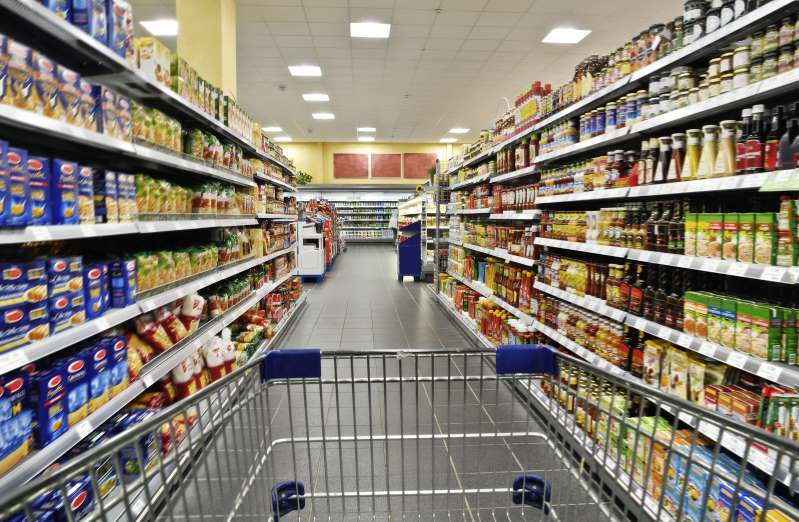Despite short-time work and fears about the future. Cheaper private labels in retail are losing market share.
In the pandemic in Germany, the supermarket is not saving: In the Corona year 2020, consumers reached for branded goods much more often than before the crisis. “People wanted to have a good time at home, where they had to spend most of their time due to the lockdown, and were willing to spend more money on food, beverages and detergents, cleaning products,” explains GfK retail expert Robert Kecskes the trend.
According to the figures from the market researcher GfK, households in Germany spent an average of 10 percent more money on branded goods in the Corona year 2020 than in 2019. The retail's own brands could not quite keep up with this rapid growth and lost market share – at least in most categories .
The success of branded articles is not a matter of course. Because short-time working and fear of the future would have expected something else. After all, consumers in Germany had shown great confidence in retailers' own brands just before the outbreak of the crisis.
In a survey carried out jointly by the specialist journal “Lebensmittel Zeitung” and the market research company Ipsos, around 96 percent of consumers stated that they bought private labels at the beginning of February 2020. According to their own statements, two thirds trusted them as much as they did the manufacturer's brands. And almost one in ten even thought it was more trustworthy than the more expensive competition. But with the crisis, many consumers apparently came back to the strong brands.
Branded products stand for stability
For the psychologist Stephan Grünewald from the Rheingold Institute in Cologne, who tries to fathom the mood in the population with depth psychological interviews, this buying behavior is quite understandable. “Corona is associated with great experiences of fainting because we cannot see, smell or taste the danger,” he explains. Branded products promise stability in this situation. “We have known them since childhood. They have lasted for decades and survived many crises. That is why they convey a feeling of security, especially in the pandemic.”
In addition, a lot of things that otherwise made life worth living broke away in the pandemic – such as stadiums, disco visits or travel. Consumers wanted to compensate for that at least to some extent. “We want to comfort ourselves and pamper ourselves and then like to grab the more expensive branded products – in the hope of regaining some of the lost sensuality.”
According to the psychologist, something else played into the hands of branded goods manufacturers: “There is a widespread fear of being neglected in the home office in baggy trousers,” he observes. Shopping at Edeka and Rewe is gaining a new meaning as a demonstration of one's own sophistication. “And that is simply better with branded products.”
Conscious nutrition is booming
The retail expert of the market researcher Nielsen, Fred Hogen, also sees a trend towards more conscious nutrition among consumers in Germany in the pandemic. “Organic products, vegetarian and vegan foods have experienced a real boom.” The branded goods also benefited from the changed shopping habits in the corona crisis. Because for fear of a corona infection, many consumers are currently doing their shopping in a single shop if possible and avoid going to a second or third shop.
This is currently attracting additional customers to the supermarkets with their diverse product ranges. And there the temptation to use branded products is much greater than at the discounter. In many cases there was no shortage of money. After all, many restaurant visits had to be canceled due to the pandemic and numerous vacation trips had to be postponed.
Are branded articles on the rise everywhere? Not quite: there are exceptions. In the cosmetics and personal care sector, for example, in 2020 it was the branded goods manufacturers who came under the wheels. Because the lockdown and the triumph of the home office reduced the importance of cosmetic products and parts of body care. “They weren't used as often, and when they were needed, the cheaper private label was often sufficient,” said Kecskes.
Despite the current success of branded goods manufacturers, Kecskes does not want to rule out a resurgence of the retail's own brands. Currently, the economic effects of the pandemic have not yet reached most households. But the situation will probably become more difficult in the future and money will become scarcer in many households. “This will be a chance for the private label to make a comeback,” he believes.

